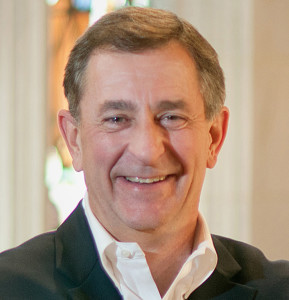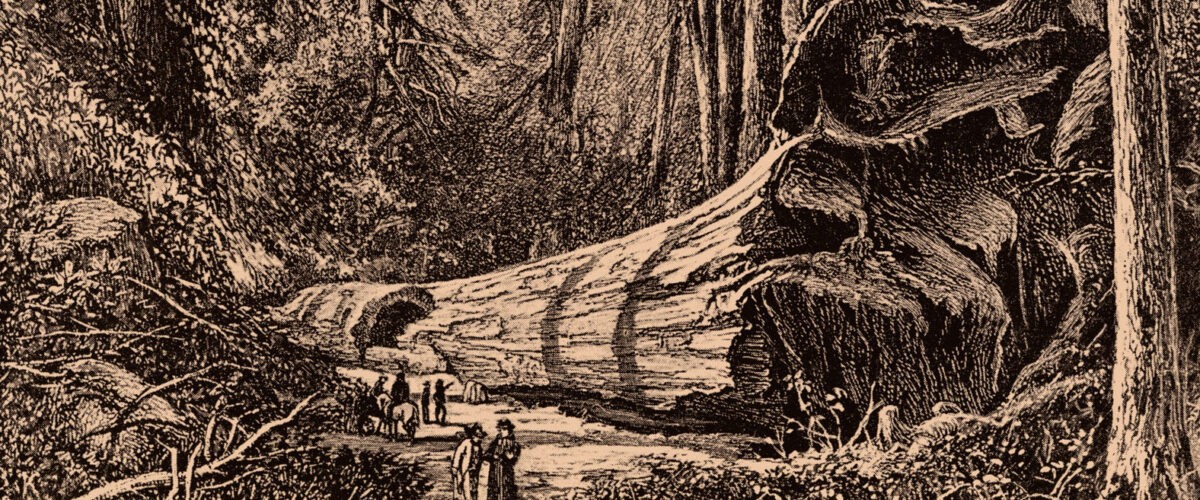It’s been several years since the huge oak on the property of First Church came crashing down into the empty parking lot one Saturday night. A blast of straight-line winds proved more than the 250-year-old icon could withstand. The tree had become something of a logo for us, as it towered over the intersection and helped people find us; we were “the church at the giant oak.”
An arborist had been working with us for several years, as there were signs that all was not well with our iconic tree. However, we were not prepared for what we found as we examined the massive trunk that now lay on the ground. It was hollow. Over the last several dozen years it had gradually died from the inside out. The strong wind simply finished off what had been going on beneath the surface for years.

Bill Wilson
That haunting lesson never left me, especially as I watched a parade of clergy and other leaders at that same church implode over the next few years. All proved to be as hollow in their spiritual life as our gigantic oak.
A few weeks ago, I was taken aback when I read Peter Wehner’s article “The Evangelical Church Is Breaking Apart” in The Atlantic. It’s a powerful read that I heartily recommend. He quotes numerous leaders of the American church to support his thesis that this decade will see our churches face some of the most significant challenges of our lifetime.
One quote brought me back to the lesson of the giant oak. James Ernest, vice president and editor-in-chief at Eerdmans Publishing, was lamenting the way many Christians are more shaped by politics and culture than by their faith: “The evangelical church in the U.S. over the last five decades has failed to form its adherents into disciples. So there is a great hollowness. All that was needed to cause the implosion that we have seen was a sufficiently provocative stimulus. And that stimulus came.”
Hollow churches are a result of shallow disciples who take their cues more from the media or their preferred politicians than from the teachings and person of Jesus Christ. When the inevitable storms come, we have little internal strength to withstand the vitriol and pugnaciousness of those who claim to be our nation’s leaders. Instead of calling them to be transformed by the person and teachings of Christ, we find ourselves being conformed to the very opposite of what Christ intended his followers to become.
“Hollow churches are akin to the people and churches Jesus referenced who build their lives on the shifting sands of the day, rather than the solid rock of the person of Jesus Christ.”
Hollow churches are akin to the people and churches Jesus referenced who build their lives on the shifting sands of the day, rather than the solid rock of the person of Jesus Christ. There was a reason this parable was the culmination of the greatest sermon ever preached (Matthew 5-7), as it summarizes what seemed to be at the heart of what Jesus desired for his followers. He didn’t come to die on a cross and establish a church that would be blown about by the fickle winds of culture and politics. He envisioned a church that would hold fast despite who is in office or who is pushing their polluted agenda.
What does it look like to resist the lure of the hollow church and cling to strong, rooted and grounded congregational life? At the very least, it means:
- We seek to be defined more by what we believe in than what we are against.
- We raise up children, youth and adults who are biblically and theologically literate.
- We are unafraid to talk about the challenges the church faces, yet we do so according to the guidance of Paul: “Speak the truth in love.”
- We limit our intake of toxic politics and focus our attention on the prayer Jesus taught us to pray: bringing the kingdom/reign of God to our city as it is in heaven.
- We call out the false prophets of the day who prize judgment over mercy and grace.
- We assume the posture of the disenfranchised and the minority, and we own the fact that we do not know how to live from this perspective.
- We find collaborative partners from the realm of those who have been genuinely persecuted and shoved aside in the name of greed, narcissism and affluence.
- We fall back upon our faith in Christ, rather than our financial resources, facilities, doctrines, knowledge or political persuasions.
- We seek the good of our city, rather than the good of ourselves.
- We invite non-believers and skeptics into our circles of mercy rather than berate them for not being more like us.
- We grow from the inside out, as Jesus taught, rather than basing our lives upon the external and transitory culture that surrounds us.
- We actually regard others as more important than ourselves (Philippians 2:3) and live accordingly.
Hollow lives and hollow churches are like hollow trees. From a distance, they may look strong and appealing. Upon closer inspection, or during the winds of turmoil and stress, they are found to be weak and easily manipulated or toppled.
May your church be one of those strongly rooted, tenacious and enduring congregations that chooses the narrow path of discipleship and reaps the divine reward for that discipline. We need you now more than ever.
Bill Wilson serves as director of The Center for Healthy Churches in Winston-Salem, N.C., and is a member of the Baptist News Global board of directors.
Related articles:
Finding resilience in the midst of COVID fatigue | Opinion by Bill Wilson
10 observations about church health for the next chapter of ministry | Opinion by Barry Howard
Largest-ever U.S. congregational survey confirms what church consultants have been telling you


